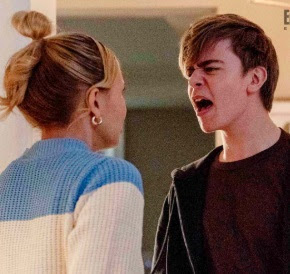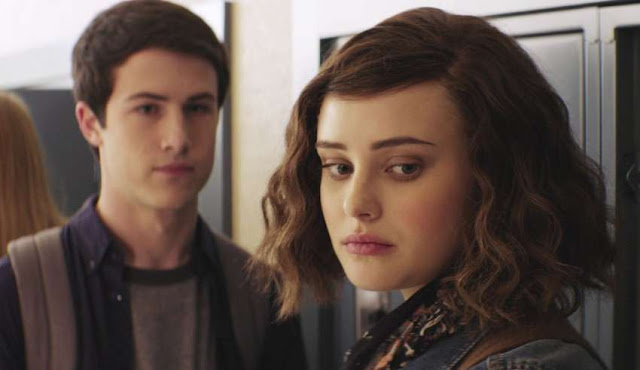We have seen the massively deadly consequences of blame shifting onto other demographics. Such disturbing misperceptions of factual reality have wreaked havoc when Nazis applied them towards Jewish people; the Black Lives Matter movement applied them towards white people, police, and businesses; when school shooters applied them to their classmates; or when women scorned were somehow emotionally manipulated into believing that murdering their own preborn babies somehow empowers them over men. None of these deadly massive movements of unjust hatred occurred in a vacuum. They are all emotional reactions resulting from methodical, diabolical, and predatory manipulation. The predators behind these evil movements used phony yet deceptive empathy as a manipulative tool for the exploitation of these hurting people's pain. The diabolically evil solutions suggested by those predators never even remotely heal the deep emotional anguish felt by their targets, but instead spread the misery, increase divisive hatred, and destroy innocent lives in the process.
The hateful movement that DATELESS TO DANGEROUS chooses to expose and condemn is a largely online and rather obscure movement called the incel movement. They are disenfranchised ignorant single men who believe they have no chance at getting a date, so they have strong hatred towards women, even to the point of viewing women as less than human. They discuss their hatred on open forums online, where they show each other toxic empathy that only encourages their diabolically evil viewpoints.
When people feel as if the people of a certain other demographic have rejected them or undermined their existence as a human being worthy of being seen, spoken about, and treated with inherent human dignity, it is fundamental in human nature to counter-reject that demographic that they feel has first rejected them. We do this naturally to protect our own perception of our own self-worth. The concept has been addressed in a 1967 song by the Doors called "People are Strange." The line, "Women seem wicked, when you're unwanted. Streets are uneven when you're down," summarizes the human condition quite well. We see men blaming women for their own moral failings as early as Adam blaming Eve, to God, for Adam's own consumption of the forbidden fruit, with Adam's audacity even partially blaming God for putting Eve in the garden with him. We see their eldest son Cain then murder his brother Abel, out of jealousy. While this was all long before the existence of Karl Marx, their evil attitudes and actions were inspired by the same source that would later inspire Karl Marx, the Devil. All the aforementioned movements also take the reality denying Marxist attitude of, "I am unjustly victimized. They have what I don't have, because they exploited me to get it. I therefore have the right and responsibility to take what I am rightly entitled to from them, even if that requires killing them in the process."
Now that I have laid the groundwork, let's get specific to the movie. While some may find it surprising, it was written by two men, Edmund Entin and Gary Entin. The central character is Miles Miller (Alexander Elliot) who is an angst ridden teenage boy. At the start of the movie, Miles appears like a normal and typical teenage guy. There is nothing about his appearance that cries out "target," nor is there anything about his appearance that cries out, "psychopath." Miles is not made fun of by his peers. At the start of the movie, he seemed like a decent and normal guy.
The big star, and draw to the movie that inspired my wife and me to watch this movie, is actress Jodie Sweetin who plays Miles' mother, Noelle. If anyone is unfamiliar with the name Jodie Sweetin, she is most famous for playing the role of Stephanie Judith Tanner on Full House, one of the most successful sitcoms in television history. Stephanie is the spunky middle sister of the three girls (younger sister of the character played by Candace Cameron Bure, older sister of the character played by both Olsen twins, middle daughter of Bob Saget's character.) Stephanie was known for sarcastic quotes such as "pin a rose on your nose," and her catchphrase, "How rude," which originally comes from C-3P0 in The Empire Strikes Back, a movie that came out before Jodie was born. In DATELESS TO DANGEROUS, Jodie's acting reaches a whole new level that I have never seen before. This is not a comedic role, but a serious dramatic role. Jodie Sweetin is convincing in her delivery of every dramatic line, displaying acting talent that far surpasses what Full House or its reprise known as Fuller House ever allowed her to show. I have a whole new level of respect for Jodie's talent as an actress. While this movie will never become as famous as Full House, and Jodie's role as Noelle Miller will never be as iconic as her role of Stephanie Tanner, this movie shows a far greater depth of Jodie's acting talent. Her character is highly likeable the entire time, loving towards her children, and humble enough to admit that she was not aware of all the challenges that a teenage boy is forced to deal with.
The third major character is Haley Miller (Nikki Roumel) who is the younger teenage sister of Miles Miller, making her Noelle's younger child. Haley is a confident teenager who likes to dress in a sexy manner, even though her mother tries to moderate the degree to how Haley is allowed to dress. Haley is starting at a new school, the same school as Miles. Haley catches the romantic interest of Miles' best friend Sam (Kolton Stewart), much to the chagrin of Miles.
Haley is respectfully adamant in trying to encourage her brother to ask a specific girl, Sophia (Alexandra Chaves) he had a crush on, to the homecoming dance. While Haley offered some romantic ideas of how he should approach the situation, Miles did not want to be generic about it, but insisted that his approach to Sophia should be more grandiose. So, in the school hallway, Miles lies on the floor, with a chalk outline around himself, and a message to Sophia that he is dying to go to the homecoming dance with her. A large crowd of teenage peers surrounds Miles as Sophia approaches her locker to see the situation. She politely declines, telling him that she already promised her friends that she would go with them in a group. Perhaps, from a female perspective, there may be something to that, but no guy is going to be convinced that such would have been her response had Miles been someone she was even remotely attracted to. This was a humiliating rejection for Miles, and in the digital age, the whole rejection was caught on someone's phone and widely shared. From my perspective, however, Miles brought this out on himself. He should have asked her in private, not in such a dramatic manner that could have been very uncomfortable for Sophia and totally puts her on the spot in front of her peers like that. I feel that his approach was insensitive to her and failed to account for the uncomfortable position that it potentially puts her in. Regardless, Miles feels incredibly victimized and mistreated, failing to see that regardless of his feelings and effort, she is a person with the right and freedom to turn him down, as hard as that is for him. Rejection is not automatically injustice, which is a concept that the rejected often struggle to understand.
While Haley tries to genuinely comfort her brother, claiming that it was Sophia's loss, Miles instead seeks his solace from a sketchy online gamer who puts down Miles over his appearance and furthermore refers Miles to a likeminded online community of incels, other single guys who also passionately loathe females.
Miles, Haley and Sam are all on the debate team. The debate instructor, Mr. Kumara (Husein Madhavji) chooses the topic of purity pledges and whether they are helpful or harmful. The teenagers are initially split about 50/50 on this matter. Haley believes that purity pledges are harmful. Miles believes they are helpful. Mr. Kumara presses both sides to defend their position. Miles makes the point that purity pledges empower girls on the grounds that girls are openly given the free choice as to whether they will make those pledges or not, since the pledges are never compulsory. Haley provides an opposing viewpoint that if a girl makes such a pledge and then violates it, she has no power remaining. Haley states her case in a flowery and emotional tear-laden manner that tugs at the heartstrings of the easily manipulated ignorant. Incidentally, her emotional drivel yields full support from the rest of the debate team who all shift over to her side, save Miles who stands his ground, even though he stands it alone, feeling dejected once again. What I found fascinating here was the debate instructor's failure to capitalize on a teachable moment about the power of emotional manipulation. Miles' argument was solid and rooted in truth. Haley's argument was emotional and illogical. Purity pledges provide an open avenue for girls who desire chastity to openly and unapologetically proclaim their personal choice to respect their body, respect their future husband, and respect the stability of the home that their future children will be raised in, while aligning themselves with likeminded girls who share their values. That is very empowering for free-thinking and self-respecting girls. Haley's sad attempt at a counter-point ultimately had nothing to do with the topic of the debate, purity pledges. She erected a strawman argument that slickly shifted the topic away from purity pledges and replaced the purity pledge topic with an emotional appeal about the deep shame that girls who fail at chastity inevitably feel, after the fact, irrelevant to whether they ever signed a purity pledge or not. This is a strategy that democrat politicians and pundits use all the time. They tug at people's heartstrings while manipulating their minds, thereby getting them to blame the inevitable consequences of their own poor choices on something else, someone else, or some other demographic.
How does this manipulation work? Are there that many people who are that gullible? Sadly, the numbers are growing. The predators choose specific types of targets, specifically those who are most likely to be suffering emotional pain. In the case of Miles Miller, all three of the biggest boxes are checked. Firstly, Miles does not have a personal relationship with Jesus Christ, and therefore is not firmly anchored in a worldview of absolute, universal, unchanging, and unchangeable truth. Secondly, Miles' father is no longer in the home, but off with a mistress. That leaves Miles with the void of a positive male role model, a void that predators love to capitalize on and fill. Thirdly, Miles was going through an emotionally difficult period of self-doubt, rooted in a chronic feeling of rejection by girls. These three factors make Miles a prime target, low-hanging fruit for predators who want to fill his heart, mind, and soul with all types of evil, masqueraded as empathy. He became putty in predators' hands.
Miles' romantic interests shift to his partner on the debate team, a girl named Beatrice (Shechinah Mpumlwana). After a successful debate competition for the school, the team celebrates with alcohol in a a hotel. Beatrice has been interacting with Miles in a positive approving way. When the vast majority of the girls in a guy's world seem arrogant and stuck-up to him, and he is not accustomed to girls being decent and human to him, though, it is very easy for him to mistake her innocent receptiveness for flirtatious romantic interest and inevitably feel that attraction back towards her. After receiving some bad advice from his online community, Miles walks with Beatrice outdoors, gets in front of a brick wall, and then aggressively tries to kiss her, without warning. While Beatrice neither slaps him, speaks harshly towards him, nor appears grossed out, she clearly communicates that she does not want to date. She walks away from him, leaving him feeling further rejected. I could not help but notice the brick wall behind him at this moment and think, "There's another brick in his wall." From a male perspective, though, the very same move that Miles tried would have worked had it been done by a guy she was even the least bit attracted to. So, the sting of the rejection not only is more painful, but gets coupled by the additional stinging anguish that he came across as a jerk in the process.
A few days later, back at school, Miles tells Beatrice that what she did was alright. She responded that she knew that her own actions were alright, and furthermore calls out Miles on what she perceived as Miles having an attitude of entitlement, as if girls owe him something. Miles never even considers the reality that Beatrice could potentially view Miles' actions towards her as sexual assault, a concept that is not directly addressed in the movie. This attitude of entitlement is a very problematic issue in reality. A guy who takes and follows dating advice expects it to work. When people apply the, "if I do this, then I will get that," cause and effect mentality in their interactions with their fellow human beings, they will inevitably find out the hard way that human interactions are not as predictable as programming machines. In the hallway, Miles soon comes across to Beatrice in a physically threatening manner. Beatrice approaches the debate instructor and asks for partners to be switched. When Mr. Kumara agrees and switches a few people around, Miles goes ballistic, becomes disrespectful to the teacher, uses a derogatory term towards his female classmates, and makes the entire room feel threatened and uncomfortable.
On the car ride home, as Noelle drives, she rebukes her son over what Mr. Kumara has reported to her. Miles gets into an argument with Haley, leading to Noelle rebuking them both. Back in the house, Haley tells Miles that he doesn't even realize that he is the problem. Haley was right. This is very common among those who receive affirmation from evil sources. Miles needed the loving rebuke from his mother and from his younger sister, but he was so in over his head with the lecherous online community he was a part of, that he had no respect for his mother's credibility or his sister's credibility on the grounds that they are both females and therefore inferiors, in his poisoned and brainwashed mind. Miles even got to the point as if it appeared that he was going to physically assault his mother, but Noelle firmly rebuked him verbally, which was strong enough to make him reconsider. He did, however, "accidentally," push his sister's boyfriend Sam down the stairs, resulting in Sam needing to have his arm in a cast.
The night of homecoming came. Miles took his father's gun, gasoline, and a lighter. He set the school's float on fire while it was outside Sam's house, where the pre-homecoming party was happening. People left the house, as Miles ran off. Haley chased miles, hoping to talk some sense into him. When Haley catches up to Miles in a tunnel, Miles was ready to shoot himself on the grounds that he perceived that no one loved him. Haley reassured him that she loves him, as does their mother. Noelle, who gets wind of what was going on, seeks to find Miles, too. Before Noelle arrives, however, a bullet goes off.
How does it end?
Watch it. I highly recommend this movie.
Watch it. I highly recommend this movie.















































